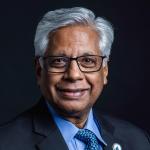SDG 14 provides the global framework for conserving and sustainably using the ocean, seas, and marine resources for sustainable development. Yet, nearly a decade into the 2030 Agenda, SDG 14 counts amongst the most underfunded and off-track goals. The ocean remains in a state of emergency due to enduring threats such as overexploitation, pollution and climate change. The 2025 Expert Group Meeting on SDG 14 emphasized persistent data gaps, fragmented governance, insufficient implementation of Marine Protected Areas, and rising vulnerability in Small Island Developing States (SIDS). At the same time, it highlighted advances in international ocean law, fisheries management, science-policy integration, and the adoption of major global frameworks such as the BBNJ Agreement and the Kunming-Montreal Global Biodiversity Framework.
This HLPF session will examine opportunities to reverse the current trajectory through inclusive, science-driven, and transformative action. The discussion will spotlight how strengthened partnerships, innovative financing, and cross-sectoral cooperation can address longstanding implementation gaps. Participants will also discuss how to leverage interlinkages between SDG 14 and the other goals under review in 2025—namely SDG 3 (Health), SDG 5 (Gender Equality), SDG 8 (Decent Work and Economic Growth), and SDG 17 (Partnerships for the Goals). The session will reflect on how to build upon the outcomes of the 2025 UN Ocean Conference and explore pathways to strengthen resilience, equity, and sustainability in coastal and marine ecosystems. It will follow an interactive discussion format. How can we build on the 2025 Ocean Conference and ensure its successful follow-up to accelerate action towards implementation of SDG 14?” How can we strengthen the means of implementation and partnerships to achieve SDG14?
Proposed guiding questions:
- How might recent crises, new commitments, COP’s discussions on climate and biodiversity, and emerging technologies affect longer term trends and change the landscape for achieving SDG 14?
- What are the key elements of an effective science-policy-society interface, bringing marine science into decision-making in an inclusive and forward-looking manner and advancing the 2030 Agenda as a whole?
- Over the past 10 years, what have been the biggest impediments to implementing SDG 14 in different regions?
- What are the emerging opportunities to accelerate achievement of SDG 14 by 2030?
- What opportunities exist for building on synergies with other policy goals and for managing trade-offs?
Chair:
- H.E. Mr. Lok Bahadur Thapa, Vice-President of ECOSOC
Moderator:
- Mr. Kiliparti Ramakrishna, Director of Marine Policy Center and Senior Adviser to the President on Ocean and Climate Policy, Woods Hole Oceanographic Institution
Panellists:
- Ms. Elizabeth McLeod, Global Ocean Director, the Nature Conservancy
- Ms. Editrudith Lukanga, Secretary-General, African Women Fish Processors and Traders Network (AWFISHNET/WFF)
- Mr. Charles Tellier, Deputy to the Special Envoy of France for UNOC3
Lead discussant:
- Ms. Sophika Kostyniuk, Managing Director, Aquatic Life Institute
Interactive discussion:
Due to limited time and to maximise participation, interventions in interactive discussions should be limited to two to three minutes. The time limit will be strictly implemented, using a timing device and/or microphone cutoff as necessary. Depending on the number of requests for the floor in a given discussion, the time limit may be adjusted downward, as necessary. Participants are discouraged from reading prepared statements; instead, they are encouraged to make informal remarks and engage in an interactive discussion. Priority will be given to ministerial-level interventions.
 Welcome to the United Nations
Welcome to the United Nations







